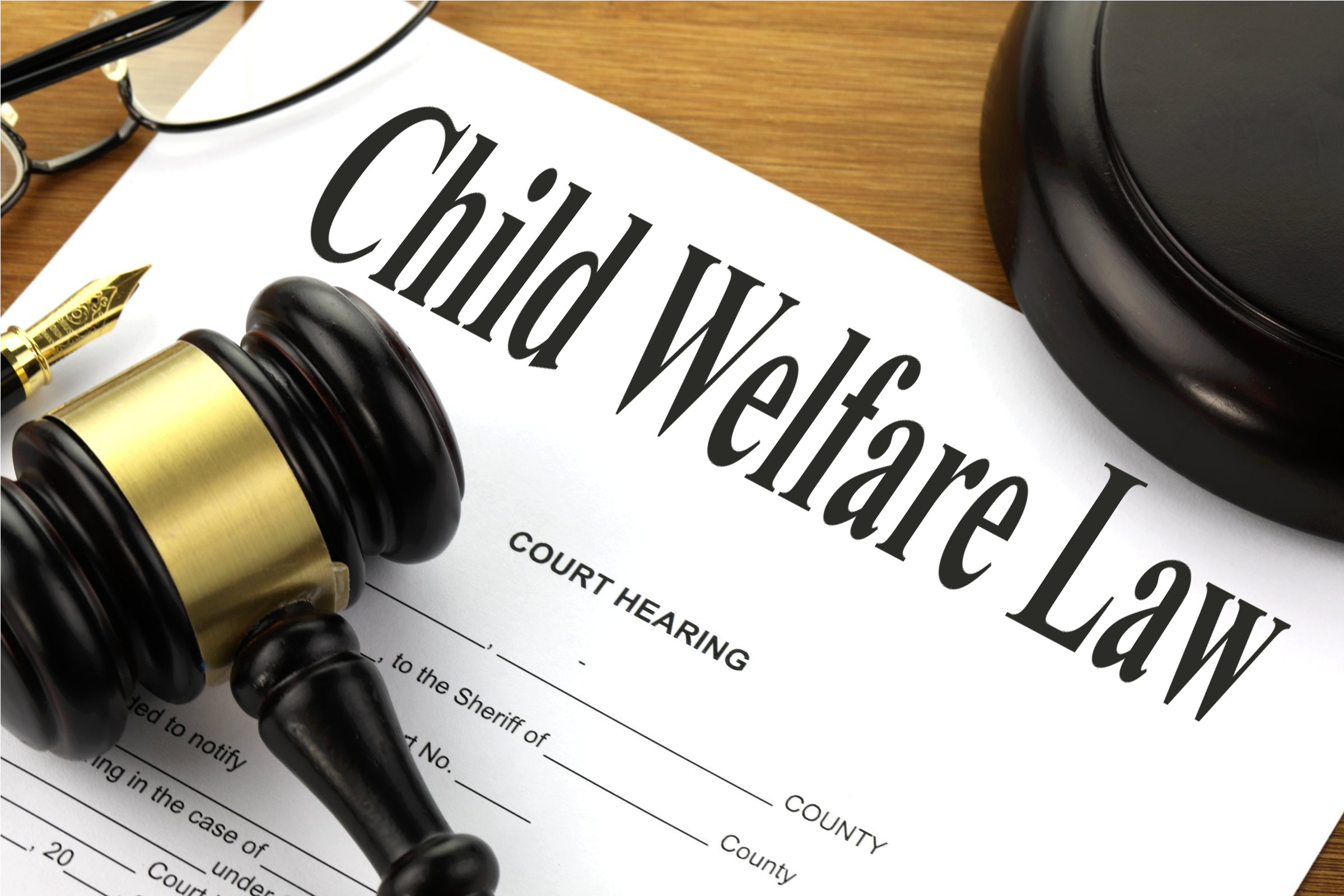
Child Welfare Laws in Georgia
When navigating the turbulent waters of divorce, understanding the intricacies of child welfare laws in Georgia becomes crucial, especially for parents. This guide complements the child custody pages on Divorce Lawyers Atlanta, offering parents a detailed look into these laws. While child custody focuses on the rights and responsibilities of parents post-divorce, child welfare laws ensure children’s safety and well-being. As the divorce landscape evolves in the Peach State, the Georgia Department of Human Services has emphasized the importance of prioritizing children’s best interests above all else.
Frequently Asked Questions About Georgia Child Welfare Laws
Child neglect in Georgia is defined and understood based on the state’s legal framework and its commitment to the protection of children’s rights. At its core, child neglect refers to the failure of a caretaker, primarily parents or guardians, to provide the necessary care, supervision, and environment that ensures a child’s physical and emotional health and development.
Physical Neglect: This is perhaps the most evident form of neglect. It involves failing to provide basic life necessities like adequate food, clothing, shelter, and hygiene. It’s not always about the inability to provide (due to poverty or other socio-economic factors) but sometimes about the willful withholding of these essentials.
Medical Neglect: This refers to the failure to provide appropriate health care for a child, especially when it’s needed to treat a potentially serious disorder or condition. It doesn’t always mean that parents deny medical care; sometimes, it can mean delaying or ignoring the need for care.
Educational Neglect: Not ensuring a child attends school regularly or not addressing special educational needs can be seen as neglect. Georgia law requires children between certain ages (typically 6-16) to attend school, and failure to ensure this can have legal consequences.
Emotional Neglect: This can be more challenging to identify but is equally harmful. It involves failing to provide the necessary emotional support, love, and affection a child needs for proper emotional development. This can include ignoring, rejecting, belittling, or not providing appropriate mental health care.
Supervisory Neglect: Children require supervision appropriate to their age and development. Leaving a young child home alone or without proper care might be considered supervisory neglect.
Exposure to Violent Environments: Allowing a child to remain in environments where they witness frequent violence or severe abuse, even if the child is not the direct victim, can also be considered a form of neglect due to the emotional and psychological harm it may cause.
It’s important to note that Georgia’s legal system understands that families can sometimes face hardships that may temporarily affect their ability to provide for their child. In these cases, the state often works with families to offer support and resources. However, willful and repeated neglect that jeopardizes the well-being and safety of a child can lead to legal consequences, including the possible removal of the child from the home.
CPS can investigate reports of abuse or neglect, interview the child, and other family members, and recommend support services. They cannot make arrests or forcibly remove a child without a court order.
Georgia Code 19-7-5, often referred to within the state’s legal community as the “Mandatory Reporting of Child Abuse” statute, sets forth the requirements for reporting suspected cases of child abuse or neglect. This statute is a critical part of Georgia’s child welfare framework, and it plays an essential role in ensuring the safety of children across the state.
Who is mandated to report?
Under this code, certain professionals are classified as ‘mandatory reporters’. These professionals include, but are not limited to: educators and school personnel, healthcare professionals, counselors, therapists, social workers, law enforcement personnel, and child service organization workers. Given their positions, these professionals are often the first to recognize signs of potential abuse or neglect.What situations trigger a mandatory report?
Anytime a mandatory reporter has reasonable cause to believe that a child has been physically or emotionally abused, sexually abused, exploited, or neglected, they are obligated to report this suspicion.How should the report be made?
Reports should be made either orally or in writing and should be submitted to the child welfare agency providing protective services, as designated by the Department of Human Services, or to an appropriate police authority or district attorney. If a report is made to the child welfare agency or the police, they must notify the other party immediately.What happens after a report is made?
Upon receiving a report, the relevant authority will begin an investigation to assess the child’s safety and determine if any further action is necessary. The identity of the reporter is kept confidential to the extent permitted by law, although it may be disclosed in certain circumstances, especially when court action is involved.Are there any consequences for not reporting?
Yes, professionals who are mandated to report and fail to do so can face potential penalties. This can range from misdemeanor charges to potential fines and even imprisonment in some cases.Protection for the reporter:
Georgia Code 19-7-5 also offers protection to those who report in good faith. This means that if you report suspected child abuse or neglect and it turns out you were mistaken, as long as the report was made in good faith, you’re generally protected from legal repercussions.
The Georgia Code 19-7-5 emphasizes the state’s commitment to protecting its children and underscores the collective responsibility of its citizens, especially professionals, to ensure the safety and well-being of the state’s youngest residents.
When DFCS intervenes in a family situation, it can be a stressful and challenging time for parents. Understanding your rights is crucial to ensuring you’re treated fairly and can advocate for the best interests of your child and family. In Georgia, parents have several rights when working with DFCS:
Right to Be Informed: Parents have the right to be fully informed about the allegations made against them. This includes understanding the specific nature and details of the accusations, as well as the identity of the complainant, unless there’s a compelling reason to keep it confidential.
Right to Be Heard: Parents should have the opportunity to tell their side of the story. This means they can provide their perspective, present evidence, and share any relevant information that might counteract or clarify the allegations made against them.
Right to Legal Representation: Parents can have an attorney present during all interactions with DFCS. If they cannot afford an attorney, they may be eligible for court-appointed counsel. Legal representation can guide parents through the intricacies of the system, ensuring their rights are protected.
Right to Privacy: While DFCS investigations can be intrusive, parents still have a right to privacy. This means DFCS cannot enter a home without consent, a warrant, or without a reasonable belief that a child is in immediate danger. Any searches or interrogations should be limited to the scope of the specific allegations.
Right to Family Integrity: While the state has an interest in ensuring the safety of children, there is also a recognized right to family integrity. Interventions should be designed to keep families together whenever possible and safe.
Right to Access Records: Parents can request copies of their case records, barring certain limitations. This allows them to review the evidence and details of their case.
Right to Participate in Family Team Meetings: These meetings are opportunities for parents to work collaboratively with DFCS staff and other stakeholders to develop a plan for their child’s well-being.
Right to Appeal: If parents disagree with certain decisions made by DFCS, they often have the right to appeal. This can include disagreeing with findings of abuse or neglect, or with the services that DFCS mandates.
It’s essential for parents to understand and exercise these rights. However, with rights come responsibilities. It’s always in a parent’s best interest to cooperate with DFCS, keeping the child’s well-being as the top priority. If you believe your rights have been violated or you have concerns about your interactions with DFCS, consulting with an attorney knowledgeable in Georgia family law is recommended.
A neglectful parent is one who fails to provide adequate care, supervision, education, or neglects the child’s basic needs, either deliberately or through carelessness.
While Georgia doesn’t have a specific verbal abuse statute, continuous verbal abuse may be considered as emotional abuse under child endangerment laws.
Child neglect, one of the most prevalent forms of child maltreatment, can manifest in various ways depending on the specific needs that are being unmet. While the circumstances can vary widely, neglect typically falls into one of these four categories:
Physical Neglect: This is perhaps the most recognizable form of neglect. It involves failing to meet a child’s basic physical needs. Examples include:
- Insufficient provision of food or providing nutritionally inadequate food.
- Not supplying appropriate clothing, such as warm coats in the winter or suitable footwear.
- Failing to maintain a clean and safe living environment. This can include a home that is excessively dirty, has serious hazards like exposed wiring or rotting floors, or lacks utilities like heat or running water.
Educational Neglect: Every child has the right to an education, and parents or guardians have a responsibility to ensure their child is attending school and receiving adequate educational opportunities. This form of neglect can include:
- Chronic truancy or allowing a child to consistently miss school without a valid reason.
- Failing to enroll a child in school or provide necessary special education resources.
- Ignoring a child’s special learning needs or not addressing potential learning disabilities.
Emotional Neglect: This form is more intangible than the others but can be just as damaging. Emotional neglect does not always stem from a lack of love but from a lack of awareness or understanding of the child’s emotional needs. Examples encompass:
- Ignoring a child’s need for affection, comfort, or emotional support.
- Exposing a child to chronic or severe spousal abuse.
- Permitting a child to use drugs or alcohol, or exposing them to other inappropriate behaviors.
- Isolating the child, such as keeping them away from peers or other supportive adults.
Medical Neglect: This type of neglect occurs when a guardian fails to provide appropriate medical care for a child, even if it’s readily available and they can afford it. This can include:
- Failing to seek care for a sick or injured child or not following medical recommendations for a child’s health issue.
- Withholding prescribed medications or treatments.
- Failing to provide preventative medical care, like vaccinations or regular check-ups, without a valid reason.
It’s important to note that occasional oversights or lapses in judgment typically don’t qualify as neglect. However, consistent patterns of these behaviors, especially when they lead to harm or a significant risk of harm to the child, can be cause for intervention.
Yes, in Georgia, severe child neglect can be classified as a felony, especially if it puts the child’s life in danger or causes significant harm.
Child Welfare Laws in Georgia Explained
Mandatory Reporting: An Essential Responsibility
Who Must Report? Georgia mandates professionals like educators, medical personnel, therapists, and law enforcement officers to report suspicions of child abuse or neglect. Their responsibilities go beyond their professional purview, ensuring every child’s safety.
How and When to Report? Reports should be made immediately to the Georgia Division of Family and Children Services (DFCS) or appropriate law enforcement agencies. Delays can sometimes exacerbate the situation for the child.
Child Protective Services (CPS): Georgia’s Safeguarding Arm
Role of CPS The DFCS manages CPS in Georgia. Their primary function is to investigate child abuse or neglect reports. They not only ensure the child’s immediate safety but also assist families in accessing essential services.
The Investigation Process After receiving a report, CPS assesses the child’s immediate safety and the risk of future maltreatment. The process can involve comprehensive interviews, home visits, and collaboration with other agencies. Their objective assessments play a significant role in court decisions related to child custody.
Removal and Foster Care: Ensuring Safety
When the home environment poses a danger, Georgia law permits the temporary removal of a child from their residence.
Placement Options Children can be housed with relatives, state-approved foster homes, or group homes. Every placement decision centers on the child’s best interests.
Reunification vs. Adoption While the primary objective is always reunification, in some instances where the family environment remains unsafe, the state might pursue termination of parental rights, leading to adoption possibilities.
Adoption in Georgia: A Second Chance
Consent to Adoption In Georgia, both biological parents typically must consent to an adoption. However, there are exceptions, especially if parental rights have been previously terminated due to neglect or abuse.
Home Study: A Critical Step Georgia’s rigorous home study assesses the suitability of prospective adoptive parents. The process ensures that the child’s new environment will be safe, nurturing, and stable.
Emancipation in Georgia: A Path to Independence
In Georgia, minors, often aged 16 or 17, can seek emancipation. This process grants them adult rights, but it’s not a decision courts take lightly.
The Emancipation Process To be granted emancipation, minors must prove financial independence and showcase the capacity to make mature, responsible decisions in their best interest.
Implications for Divorcing Parents
For divorcing parents in Georgia, understanding child welfare laws is not just a legal necessity but a moral one. Divorce can often lead to situations where one parent might be concerned about the welfare of the child under the other parent’s care. In such situations:
- Know your rights and responsibilities. Understanding what the state expects from you can not only protect your rights but also ensure your child’s welfare.
- Prioritize your child’s well-being. Every decision, whether it’s reporting a suspicion or seeking custody, should center on the child’s best interests.
- Seek expert counsel. The intricacies of Georgia’s child welfare laws require expert guidance. Legal professionals can provide insights tailored to individual situations.
Contact An Atlanta Family Law Attorney For More Information
Georgia’s child welfare laws reflect a commitment to safeguarding the state’s youngest residents. For parents, especially those navigating the complexities of divorce, understanding these laws becomes paramount.
For those seeking specialized guidance in the realm of divorce and child custody in Georgia, our network of experienced divorce attorneys at Divorce Lawyers Atlanta is ready to assist. Contact us for tailored advice and support in your family law journey.


